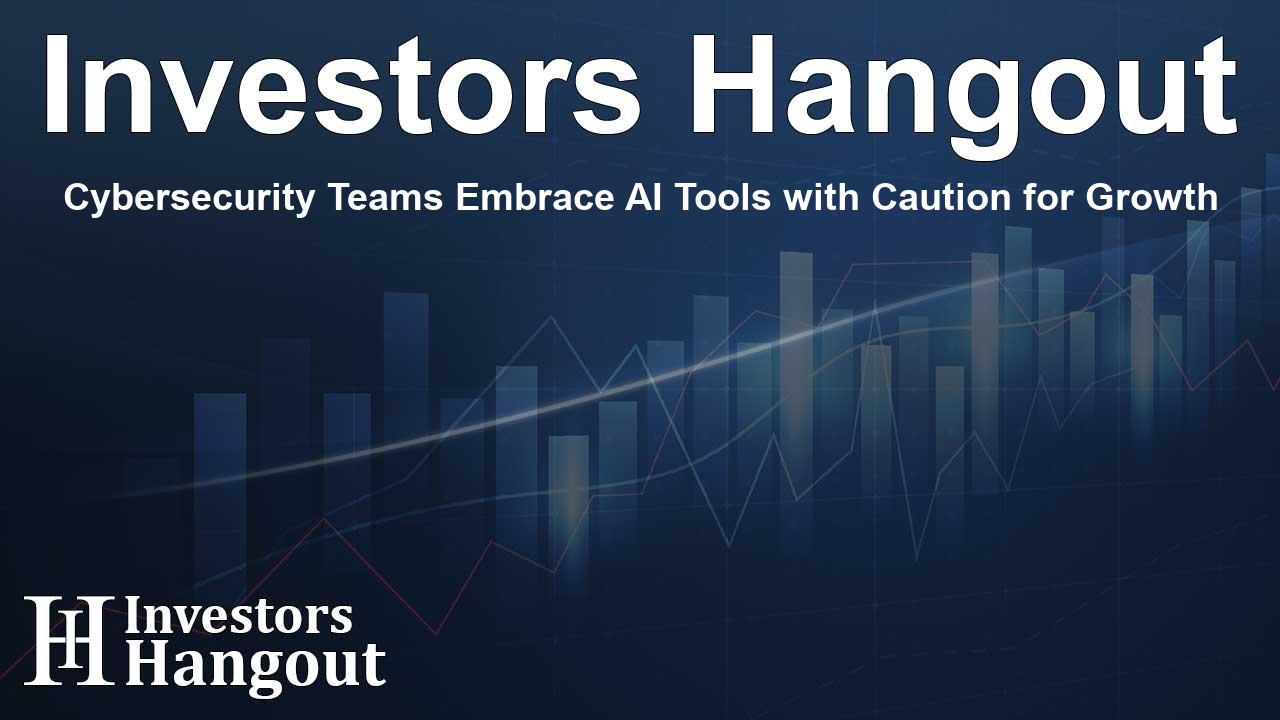Cybersecurity Teams Embrace AI Tools with Caution for Growth

Cybersecurity Teams Embrace AI Tools with Caution for Growth
In a rapidly evolving digital landscape, organizations are adapting to new technologies to strengthen their cybersecurity initiatives. A recent study has revealed that approximately 30% of cybersecurity professionals have begun to integrate artificial intelligence (AI) tools into their daily operations. This transformative shift aims to enhance team performance and streamline hiring practices while keeping security a top priority.
The Growing Influence of AI in Cybersecurity
AI is not merely a technological trend but a significant reshaping force in how organizations function. Professionals in this sector are observing a cautious yet increasing interest in AI security solutions. Interestingly, while 44% of those surveyed report no immediate changes in hiring patterns due to AI, a noticeable 28% see promise in AI creating new entry-level roles. This optimistic outlook suggests an ongoing evolution of responsibilities, allowing cybersecurity professionals to focus on strategic tasks rather than repetitive functions.
Survey Insights on AI Adoption
The recent AI Pulse Survey, encompassing insights from 436 experts across the globe, highlighted key areas of positive impact. Among these, a remarkable 70% of those using AI tools noted an improvement in overall effectiveness. Furthermore, the survey identified the top five areas where AI could enhance operational efficiency:
- Network monitoring and intrusion detection: 60%
- Endpoint protection and response: 56%
- Vulnerability management: 50%
- Threat modeling: 45%
- Security testing: 43%
AI Adoption by Organizational Size
When evaluating AI tool adoption, the scale of an organization plays a crucial role. Large organizations with over 10,000 employees lead the charge, with 37% actively utilizing AI in their cybersecurity strategies. This trend is closely matched by mid-to-large organizations and smaller entities, both exhibiting a 33% adoption rate. In contrast, mid-sized and smaller organizations lag behind, showing an adoption rate of only 20%. Notably, the latter cohort demonstrates a more conservative approach, with 23% expressing no plans to explore AI security solutions.
Industry-Specific Adoption Trends
Several sectors are at the forefront of AI adoption. Industrial enterprises (38%), IT services (36%), commercial and consumer sectors (36%), and professional services organizations (34%) are leading the initiative. Conversely, financial services and the public sector are currently trailing, with adoption rates at 21% and 16%, respectively. However, it is noteworthy that a considerable portion of these industries is keen on evaluating AI technologies for future integration.
Shifts in Hiring Practices and Entry-Level Opportunities
A critical point raised by respondents revolves around the expected impact of AI on hiring processes, particularly concerning entry-level positions. Over half of the participants (52%) indicated that AI could diminish the need for entry-level staff. However, a significant portion (31%) remains hopeful, believing that AI can foster new roles and increase demand, ultimately balancing the employment landscape.
Despite potential disruptions, many cybersecurity professionals remain optimistic about the job market. With 44% asserting that AI has not yet influenced their organization's hiring strategies, there seems to be a cautious acceptance of change within the industry. Nonetheless, 21% acknowledged that AI has indeed reshaped their hiring priorities.
Adapting Roles to Meet New Challenges
As AI security tools become increasingly integrated, organizations are reevaluating the roles and skills required in the workforce. According to the research, 44% of professionals noted that their organizations are reassessing job descriptions and skill sets necessary to manage the deployment of AI in cybersecurity effectively.
Organizations need to strike a careful balance as they embrace the efficiencies offered by AI, all while committing to the cultivation of entry-level talent. This strategy is crucial to ensure that the workforce is skilled, adaptable, and robust enough to navigate the complexities of modern cybersecurity challenges.
Frequently Asked Questions
What is the main finding of the recent study on AI in cybersecurity?
The study found that 30% of cybersecurity professionals are already using AI tools, highlighting a cautious yet growing interest in their adoption.
How does AI affect hiring trends in cybersecurity?
While over half of respondents believe AI will reduce the need for entry-level positions, many also see potential for new roles to emerge.
Which industries are leading in AI adoption for cybersecurity?
Industries such as industrial enterprises, IT services, and commercial sectors are at the forefront, while financial services and the public sector are currently lagging.
What impact does AI have on team effectiveness?
A significant 70% of professionals using AI tools reported positive improvements in their team's overall effectiveness, enhancing operational efficiencies.
What challenges do organizations face when integrating AI tools?
Organizations must adapt job roles and invest in developing skills necessary to support AI tools, balancing efficiencies with workforce development.
About The Author
Contact Olivia Taylor privately here. Or send an email with ATTN: Olivia Taylor as the subject to contact@investorshangout.com.
About Investors Hangout
Investors Hangout is a leading online stock forum for financial discussion and learning, offering a wide range of free tools and resources. It draws in traders of all levels, who exchange market knowledge, investigate trading tactics, and keep an eye on industry developments in real time. Featuring financial articles, stock message boards, quotes, charts, company profiles, and live news updates. Through cooperative learning and a wealth of informational resources, it helps users from novices creating their first portfolios to experts honing their techniques. Join Investors Hangout today: https://investorshangout.com/
The content of this article is based on factual, publicly available information and does not represent legal, financial, or investment advice. Investors Hangout does not offer financial advice, and the author is not a licensed financial advisor. Consult a qualified advisor before making any financial or investment decisions based on this article. This article should not be considered advice to purchase, sell, or hold any securities or other investments. If any of the material provided here is inaccurate, please contact us for corrections.
